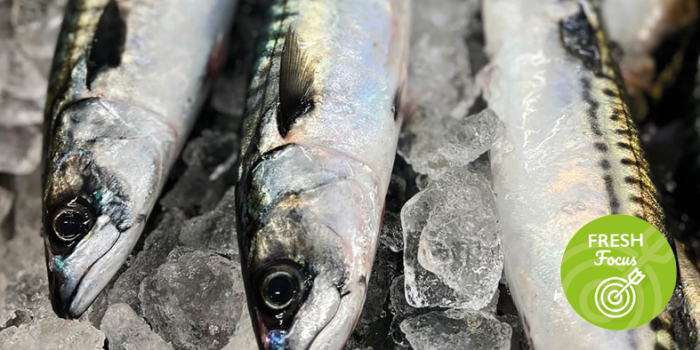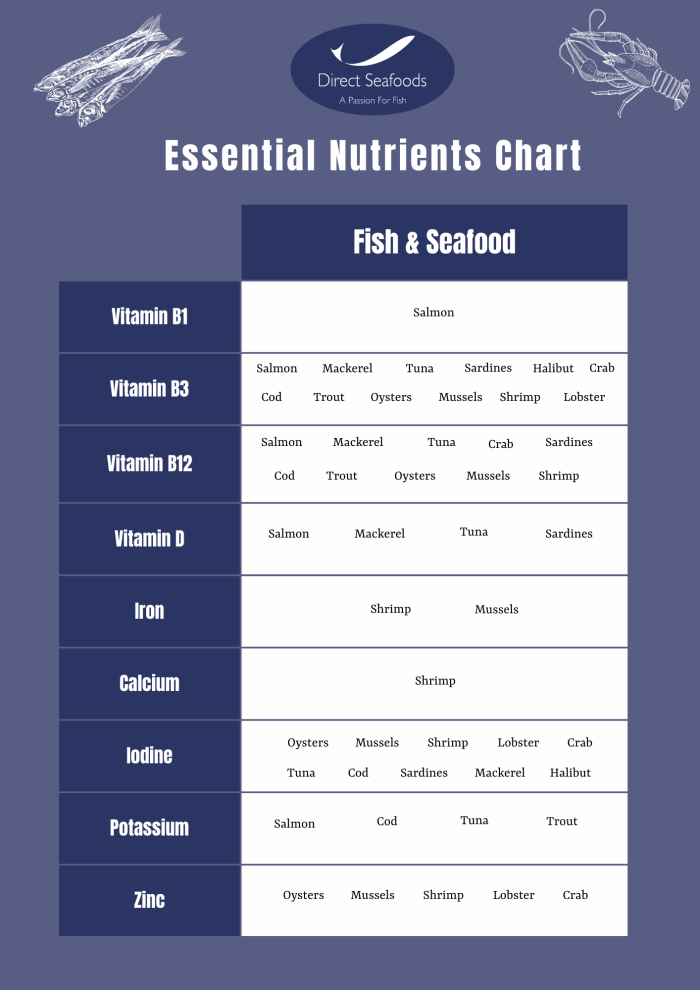Within the expansive domain of nutrition, the notion of a balanced diet extends beyond mere calorie consumption; it encompasses the provision of nutrients that help our bodies to function normally.
Among these nutrients are various vitamins and minerals, each fulfilling different roles and helping support our health and wellbeing. Vitamins and minerals are deemed essential, as our bodies cannot produce enough of them, therefore, we must get them from our diet. The exception to this is Vitamin D, which we will explore later.
A collection of vitamins and minerals can be found in fresh, wholefoods. These are normally unprocessed or minimally processed and include fruit, vegetables, meat, poultry and fish. Let’s delve deeper into the significance of these essential nutrients.

Vitamins:
There are two main forms of vitamin, water-soluble and fat-soluble. Water-soluble vitamins (such as vitamin C) are lost through bodily fluids and during cooking, therefore, we need them every day. Conversely, fat-soluble vitamins (vitamins A, D, E and K) can be stored in the body, therefore, we don’t need them as regularly.
Vitamin A: This fat-soluble vitamin is important for various bodily functions, such as helping with vision (especially in dim lighting), maintaining normal skin and mucous membranes (for example, the lining of your nose) and helping the immune system function normally. Foods that are a source of vitamin A are often colourful, such as carrots, sweet potatoes, kale and Swiss chard. Liver is also a rich source. Some seafood such as mackerel and fresh tuna can also contribute vitamin A intake. As excess vitamin A is stored in the body, eating liver more than once a week and/or taking a supplement that is high in vitamin A could mean you are getting too much. It should also be noted that too much vitamin A during pregnancy can harm the baby. Please refer to the NHS website or speak to a healthcare professional for further information.
There are many different B vitamins, all of which are water-soluble. Let’s look at vitamin B1, B3, B9 and B12 in further detail.
Vitamin B1: Thiamin, or vitamin B1, helps keep our nervous system healthy, as well as helping our bodies to break down and release the energy from food. Good sources of vitamin B1 include peas, some fresh fruits such as oranges, and liver.
Vitamin B3: Niacin, or vitamin B3, also helps release energy from the food we eat, as well as helping to maintain a healthy nervous system and normal skin. Meat, poultry and fish are good sources of vitamin B3, including fresh tuna, sardines, chicken breast and lamb.
Vitamin B9: Folate, folic acid (the manmade version) or vitamin B9, helps with the formation of healthy red blood cells, supporting normal immune function and reducing tiredness. This essential B vitamin also plays an important role in the development of the nervous system in unborn babies. Folate is found in a variety of foods, including leafy greens (spinach, kale, cabbage etc.), kidney beans, brussels sprouts, asparagus, liver and kidney.
Vitamin B12: This water-soluble vitamin contributes to the reduction of tiredness and fatigue. It is also involved in normal red blood cell production, as well as helping the nervous and immune systems function normally. Food sources of vitamin B12 include animal-derived foods such as meat, fish, shellfish, eggs, and dairy products. Please note if you are vegan, you may not be getting enough vitamin B12.
Vitamin C: Also called ascorbic acid, vitamin C possesses antioxidant properties, which contribute to the protection of cells from damage. Vitamin C also helps form collagen, which is important for normal skin, teeth and bones. Furthermore, vitamin C enhances the absorption of iron. You can find this nutrient in a diverse array of foods including citrus fruits, sweet potato, tomatoes, strawberries, and broccoli.
Vitamin D: Sometimes called the “sunshine vitamin,” this fat-soluble vitamin is synthesised in the skin upon exposure to sunlight. It plays a pivotal role in keeping bones healthy by helping to absorb calcium. Fresh tuna and oily fish such as salmon and sardines, along with fortified dairy products are dietary sources of vitamin D. Most people get the vitamin D they need from sunlight on their skin, however, in the UK it is advised to take a daily vitamin D supplement during the autumn and winter. Those at high risk of vitamin D deficiency should take a daily supplement all year round. Please refer to the NHS website for more information.
Vitamin E: Another fat-soluble vitamin, vitamin E plays a crucial role in protecting our cells from oxidative stress, which is a type of damage. Moreover, it supports the normal function of the immune system. Nuts, seeds, plant oils (including olive and rapeseed), avocados and leafy greens such as kale are replete with vitamin E. Seafood like oysters can also contribute to vitamin E intake.
Vitamin K: Our last fat-soluble vitamin, vitamin K, is important for normal blood clotting and may contribute to bone structure. Leafy green vegetables, including spinach and broccoli stand as prominent sources of this vital nutrient.
Minerals:
Minerals are inorganic chemical elements that come from rocks, the soil or water. They are absorbed into plants as they grow, or end up in animals when they eat the plants. Try to include each type of mineral in your diet regularly. Minerals such as calcium, potassium, magnesium and sodium are needed in larger quantities. Conversely, iodine, iron and zinc are needed in trace quantities. Let’s talk about some of the main minerals that feature in a healthy, balanced diet.
Calcium: This mineral plays an important role in building and maintaining healthy bones and teeth, as well as normal nerve and muscle function. Dairy products, calcium-fortified dairy-alternatives, some leafy greens such as spinach and kale and shrimp are all dietary sources of calcium.
Potassium: Involved in regulating the water content in our bodies and maintaining normal blood pressure, as well as the normal functioning of the nervous system and muscles. Potassium is abundant in various fruits and vegetables such as potatoes, sweet potatoes, bananas and avocados. Seafood like salmon, trout and fresh tuna are also sources of potassium.
Magnesium: This mineral plays a role in a huge number of bodily functions including helping our bodies to release energy from food, maintaining normal bones and muscle function. An assortment of foods, including nuts, seeds, whole grain breakfast cereals and breads and some leafy greens such as Swiss chard are sources of magnesium.
Iron: This mineral is essential for the normal formation of red blood cells, which transport oxygen around the body. Iron also contributes to the reduction of tiredness and fatigue, as well as the normal function of the immune system. There are two types of dietary iron; haem iron (comes from meat such as beef and seafood such as oysters and mussels) and non-haem iron (comes from plant sources such as edamame beans, lentils and nuts). Pairing sources of non-haem iron with foods containing animal protein or vitamin C can make it easier for your body to absorb the iron. It is also worth noting that food and drinks containing tannins including coffee, black and herbal teas can reduce iron absorption, therefore, you might want to avoid having these with your meals.
Zinc: This important mineral supports healthy hair, skin and nails, as well as contributing to normal fertility and reproduction. Zinc-rich foods include meat, poultry, some shellfish (such as oysters, mussels and crab), nuts and seeds.
Iodine: this mineral is essential for normal thyroid function and the production of thyroid hormones, which help keep our cells healthy and regulate metabolic rate. Sources of iodine include fish such as cod and halibut, shellfish such as shrimp and lobster, dairy products and eggs.
In summary, consuming a healthy, balanced diet which is rich in nutrient-dense foods will help you get the essential vitamins and minerals that you need. By integrating a variety of fruits, vegetables, whole grains, lean proteins, and healthy fats into your meals, you can help provide your customers with the nourishment their bodies need. Why not seek advice from a Registered Nutritionist or Dietitian to ensure your menu suits the nutritional needs of your diners.

Our team are on hand to support you and discuss your requirements in order to provide the best fresh ingredients for your dishes.
Follow us on social media for regular updates on Instagram, LinkedIn, Twitter and Facebook
References:
https://www.gov.uk/government/publications/composition-of-foods-integrated-dataset-cofid
https://www.legislation.gov.uk/eur/2011/1169/annex/XIII
https://www.gov.uk/government/publications/great-britain-nutrition-and-health-claims-nhc-register
https://www.nhs.uk/conditions/vitamins-and-minerals/others/
https://www.nutrition.org.uk/healthy-sustainable-diets/vitamins-and-minerals/?level=Consumer
https://www.bda.uk.com/resource/iron-rich-foods-iron-deficiency.html



